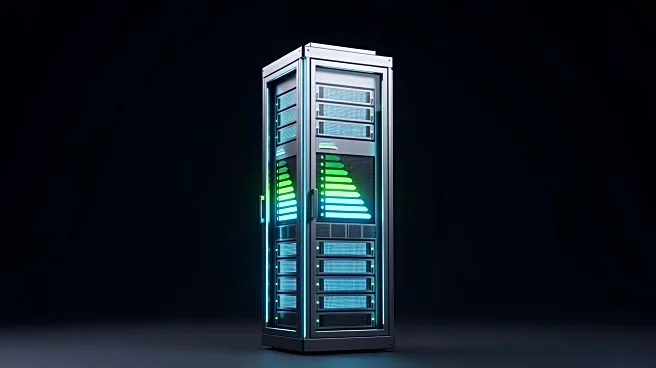What's Happening?
Chase Lochmiller, CEO of Crusoe, is leading the development of the first phase of OpenAI's Stargate data center project in Abilene, Texas. This initiative, announced by President Trump, aims to address
the growing demand for data center capacity driven by the rise of AI technologies like ChatGPT. The project capitalizes on the region's surplus of renewable energy, particularly wind and solar, which has led to negative power prices due to overinvestment incentivized by tax credits. Crusoe's approach involves utilizing stranded energy, such as waste methane from oil production, to power modular data centers, thereby reducing environmental impact and enhancing energy efficiency.
Why It's Important?
The development of the Stargate data center highlights the increasing energy demands associated with AI advancements. As AI technologies proliferate, the need for high-performance computing infrastructure grows, driving both renewable and fossil-based energy production. This project not only addresses the immediate capacity needs but also leverages excess clean energy, promoting sustainable practices in the tech industry. The initiative underscores the strategic importance of integrating renewable energy sources into data center operations, potentially setting a precedent for future developments in the sector.
What's Next?
As the Stargate project progresses, it is expected to influence energy policies and infrastructure investments, particularly in regions with abundant renewable resources. The project's success could encourage further integration of clean energy in data center operations, potentially leading to policy shifts that favor sustainable energy solutions. Additionally, the focus on security measures in these data centers may prompt industry-wide enhancements in safeguarding digital infrastructure against potential threats.
Beyond the Headlines
The Stargate project reflects broader trends in the tech industry, where the convergence of AI and renewable energy is reshaping operational strategies. This development could drive long-term shifts in energy consumption patterns, encouraging more tech companies to adopt sustainable practices. The project's emphasis on security also highlights the growing importance of protecting critical infrastructure from cyber threats, a concern that is likely to gain more attention as data centers become increasingly vital to global operations.










